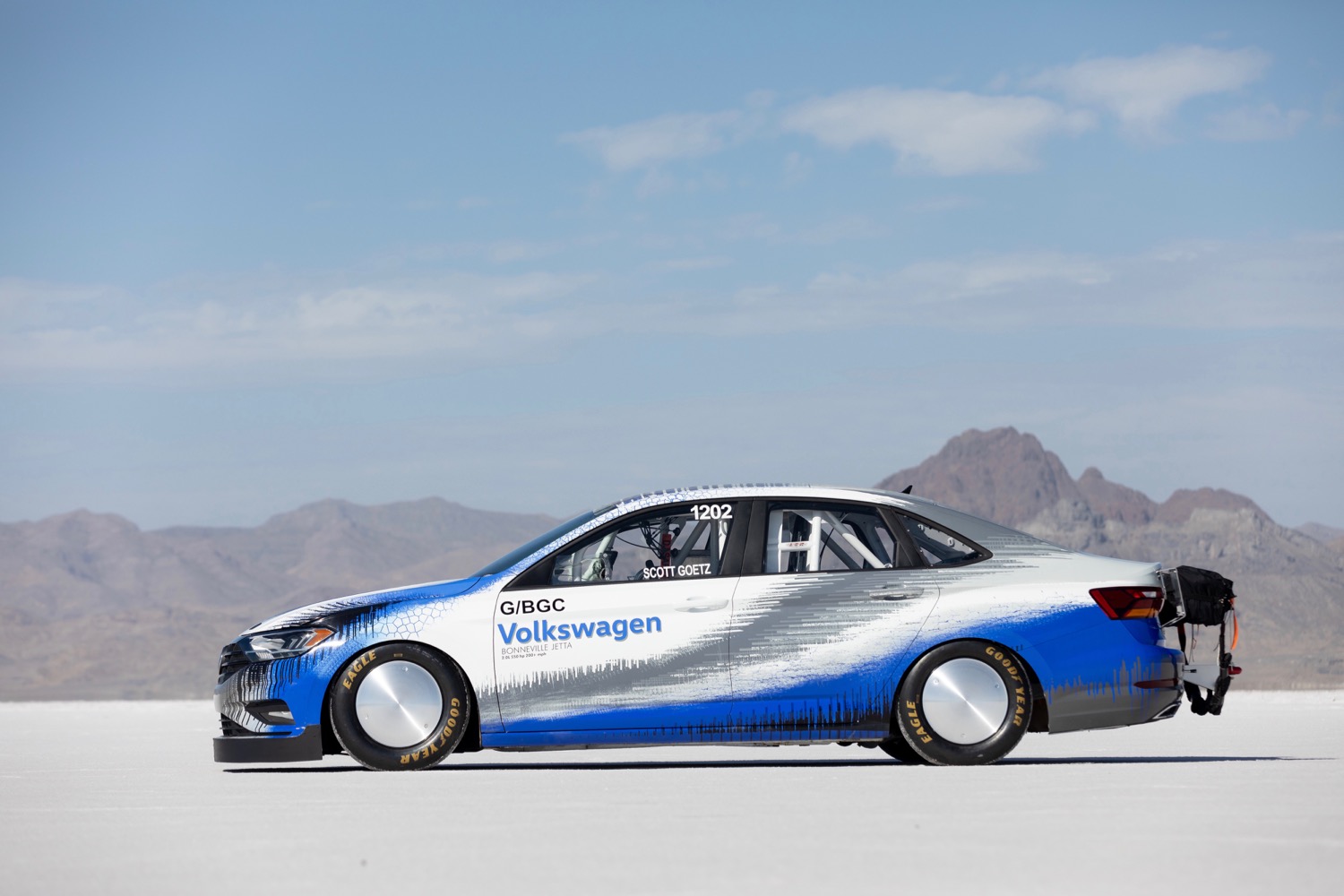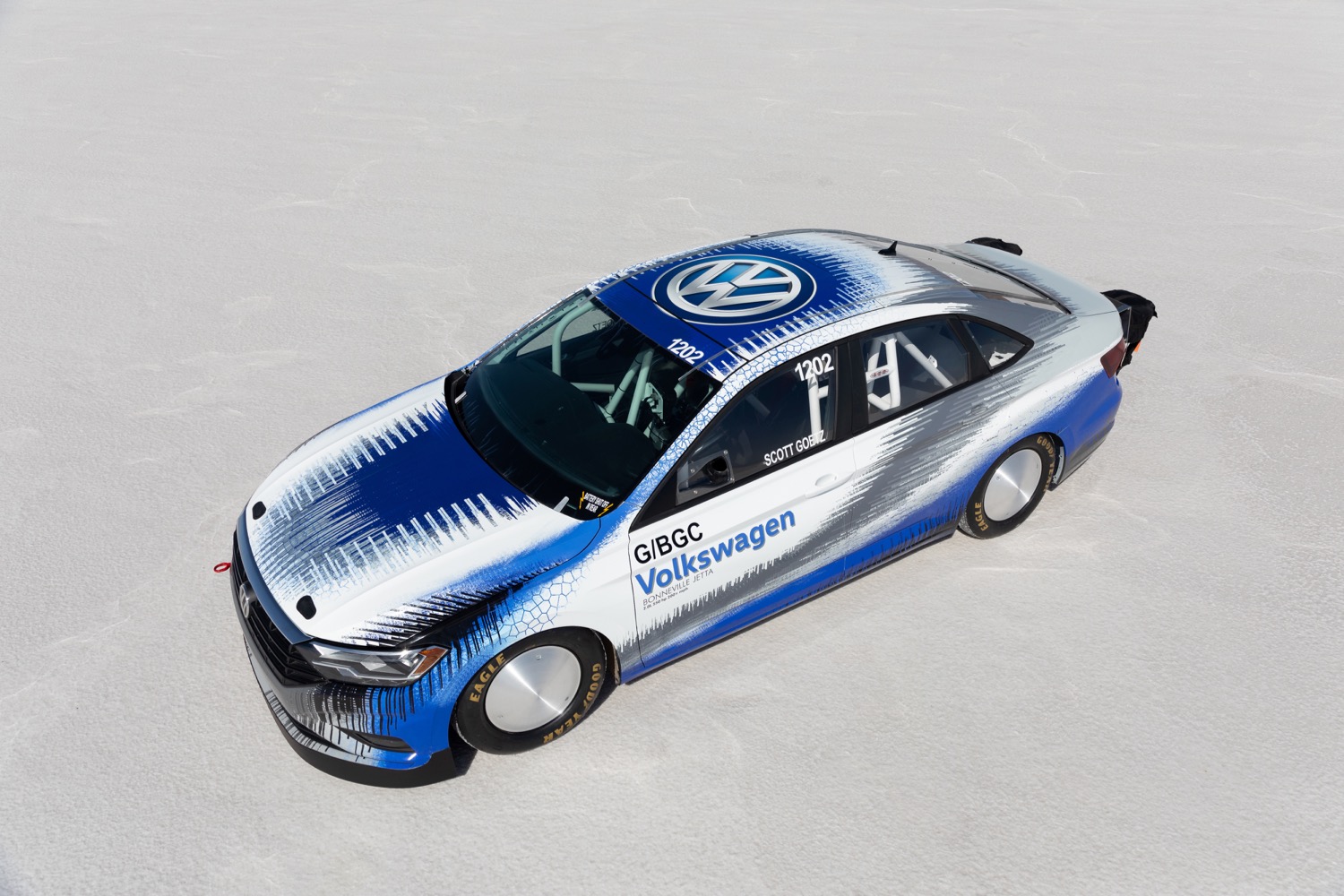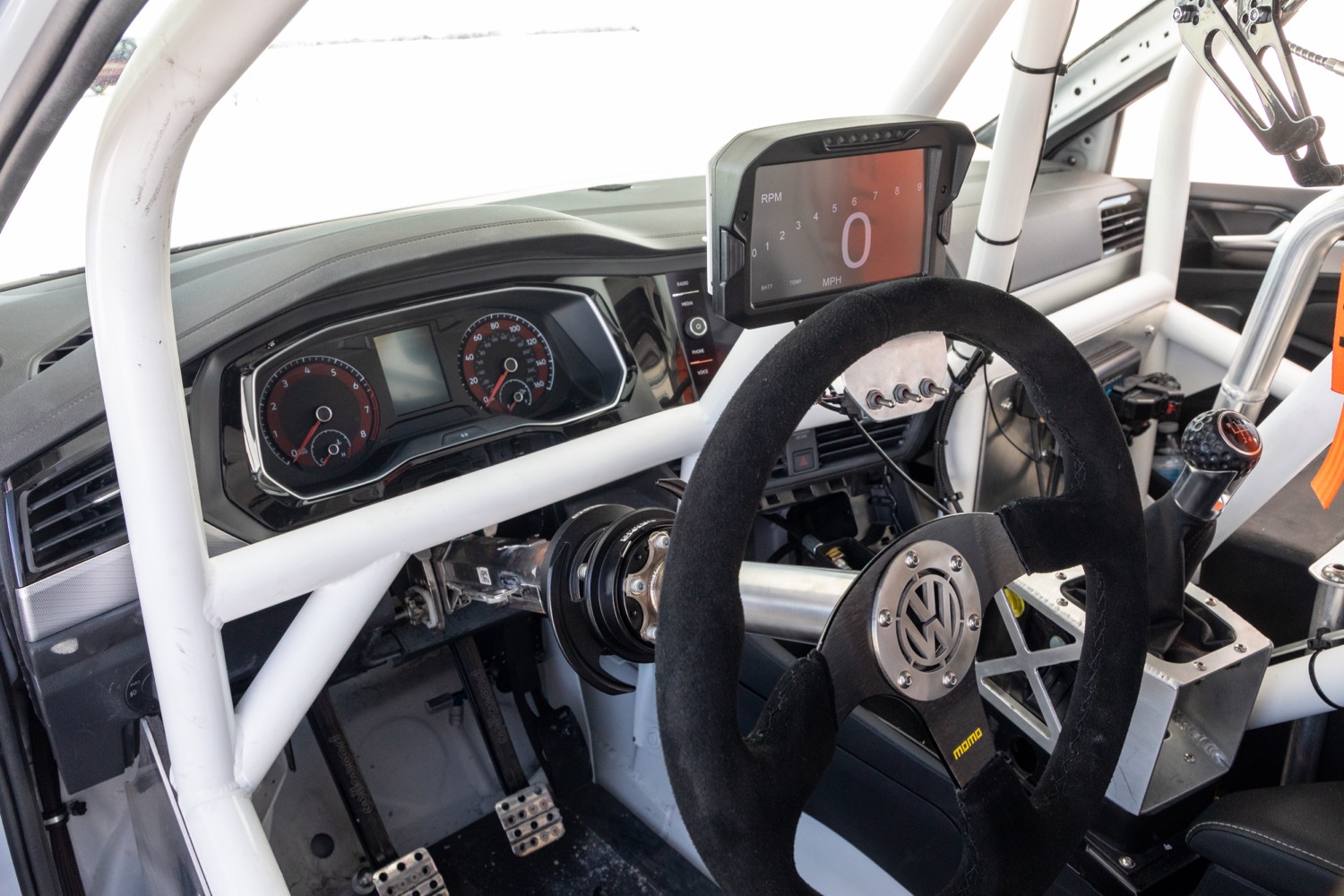When we drove the 2019 Volkswagen Jetta earlier this year, we were impressed by the compact sedan’s upscale feel and array of tech, but the Jetta didn’t strike us as particularly fast. It’s certainly not the car we’d expect to set a land-speed record. Yet that’s exactly what VW did.
Fresh off achieving a record at the Pikes Peak International Hill Climb with the all-electric I.D. R, a modified 2019 VW Jetta hit the famous Bonneville Salt Flats in Wendover, Utah. Achieving a top speed of 210.16 mph at the Utah Salt Flats Racing Association’s (USFRA) World of Speed event, it set a new record in the G/BGC class. Of the myriad classes of engine displacement, fuel type, and body style in land-speed racing, that’s the one the Jetta fit into.
The previous class record was 208.472 mph. Not surprisingly, VW needed to make some modifications for the Jetta to have a chance of beating that supercar-rivaling speed.
The land-speed record Jetta got a new engine, but not an exotic racing unit. It’s a modified version of 2.0-liter turbocharged four-cylinder EA888 engine used in the Golf GTI and many other VW models. More importantly, this engine will soon find its way under the hood of the Jetta GLI performance model. The current non-GLI Jetta makes due with a 1.4-liter turbocharged four-cylinder engine, making 147 horsepower and 184 pound-feet of torque.
The land-speed record Jetta put out 600 horsepower, according to VW, but don’t expect the production Jetta GLI to be anywhere near as powerful. Output will probably be closer to the 220 hp and 258 lb-ft the EA888 engine makes in the current Golf GTI. The race car’s engine was extensively modified with new internal parts, a new turbocharger, and new exhaust system.
In addition to the 2.0-liter engine, Volkswagen lowered the Jetta’s suspension, fitted special Salt Flats wheels and tires, and added a limited-slip differential to improve the front-wheel drive car’s traction. VW was quick to note that the Jetta’s fairly low drag coefficient of 0.27 helped provide an aerodynamic advantage at Bonneville, but the exterior mirrors were also removed for good measure.
As is standard procedure for race cars, the Jetta’s interior was stripped and fitted with extra safety equipment, including a roll cage, racing seat with harness, and a fire suppression system. A pair of parachutes helped stop the car. Modifications were made by California-based THR Manufacturing, which previously built a Bonneville Beetle for Volkswagen. Bonneville veteran Scott Goetz piloted the Jetta on its record-breaking run.
“The car inspired a lot of confidence at very high speeds,” Goetz said in a statement. “I have no doubt that we could go even faster by running some more [turbocharger] boost, but we are very happy to have the record, knowing that there is more to come in the car if we need it.”
Expect the Jetta GLI to turn up in showrooms sometime over the next few months. It won’t be as fast as the land-speed record car, but the GLI could add some much-needed excitement to the Jetta.
Updated on September 18, 2018: Added confirmation of land-speed record












